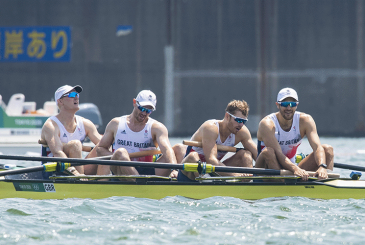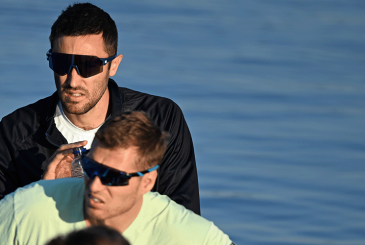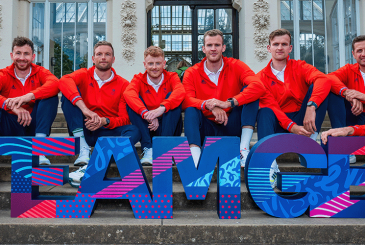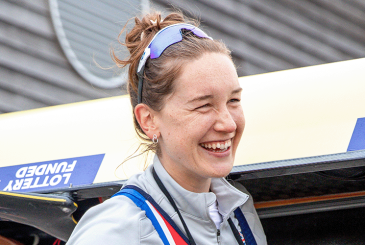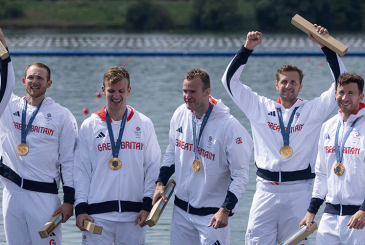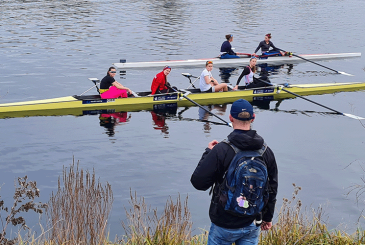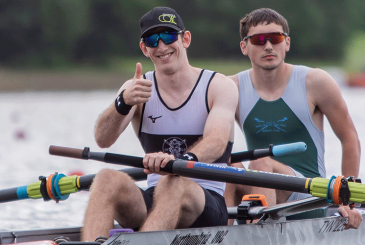Psychologist and rowing coach Richard Fryer explores how ‘psychological flexibility’ can take your rowing and coaching performance to another level
Mental preparation for sport is a popular topic and one I’m sure every reader knows something about. A quick Google search yields more than 64 million results, there are countless books written about it each year, modules delivered in coach training courses and, perhaps most interestingly, we all have a mind – so we consider ourselves somewhat of an expert on ourselves and our own inner experience.
As a psychologist working in a range of sports, this gives makes me optimistic that sports are getting to grips with the evidence-based methods through which athletes can perform effectively under pressure.
“Instead of trying to change the content of our inner world, we should work to change our perspective about our internal world”
Rowing is a sport where the mental game is particularly important. Its unique blend of endurance and pain, racing whilst facing backwards, and the variety of challenges that different race formats and weather conditions present all lend themselves to the benefits that mental preparation provides. And this has certainly been the case over the last 20 (or more) years with the development of a wide range of psychological skills training (PST) approaches for athletes, which have become commonplace in sport. These include work on goal setting, imagery, motivation, confidence, positive self-talk and self-belief.
Whilst there is nothing wrong with any of these approaches, I want to share some ideas about some emerging practices in mental preparation and to show how these differ in their underlying aims yet achieve highly effective results.
My aim is to help you broaden your perspectives as rowers and coaches, so you can ultimately choose which style of mental preparation works best for you.
Why trying to feel good may not help performance
Traditional PST approaches have one core assumption. That is, in order to perform better on the outside (i.e. row better, or faster), we must invest time changing what exists on the inside (thoughts and feelings). This belief in cause (positive thoughts and feelings) and effect (effective performance) is the pre-eminent psychological paradigm in the world today and it leads to a significant focus on attempts to make our internal worlds more positive so that we can perform well. This makes intuitive sense, but is flawed for a range of reasons:
- When we tell ourselves that we need to feel good to perform, we are also telling ourselves that when we don’t feel good, we won’t perform (this is due to how language learning works).
- We are human – and humans don’t feel good all the time.
- It’s equally likely that the direction of causality is reversed i.e. doing good leads to feeling good, not the other way around.
- We may be training ourselves to choose activities that make us feel good in the short term even if these don’t serve us well in the long term.
Is changing perspective more effective?
There is an emerging body of psychological literature which is now being applied to sport (see references below) that starts from a different core assumption. That is, instead of trying to change the content of our inner world, we should work to change our perspective about our internal world. This new way of conceptualising mental work suggests that activities that focus on changing the content of our thinking simply create a more intricate web of connected thoughts, which often make things worse not better.
Instead, we should place greater emphasis on knowing the difference between the outside world of actions like rowing, and the internal world of thoughts, feelings, urges and sensations (nerves, self-doubt, frustration etc).
“When we build the capacity to open up to our internal experience rather than be directed by it, we are able to achieve new levels of training”
This capacity to know the difference between what’s on the inside and what is on the outside enables us to choose committed action in service of what’s important to us – in other words, our values. Importantly, the aim in this new paradigm is not to achieve a specific ‘optimal’ internal state (e.g. arousal level). Rather, its aim is to increase our willingness to experience whatever internal state we happen to be in and to choose behaviours that help us do what matters in that moment, irrespective of what’s happening on the inside.
Does this mean that motivation or confidence is bad? No, not at all. These are usually helpful internal states. But they are not necessary for performance. Sure, it’s easier to get up and train when you feel good, but you can get up and train when you don’t feel good. When we build the capacity to open up to our internal experience rather than be directed by it, we are able to achieve new levels of training and performance consistency.
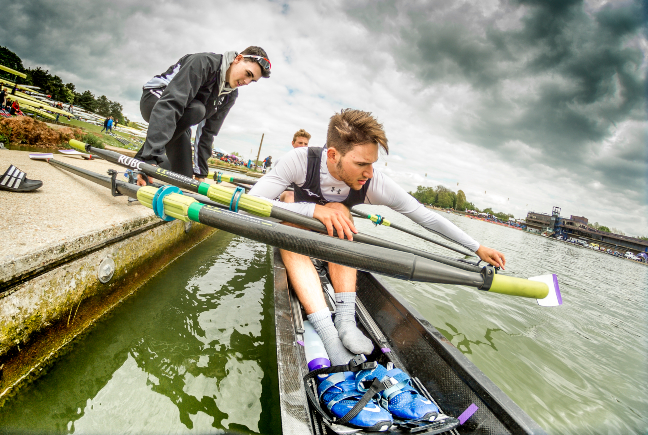
Understanding ‘psychological flexibility’
This new way of thinking has emerged from a cognitive therapy model called Acceptance and Commitment Therapy (ACT) and has been termed ‘psychological flexibility’ and is fundamentally different to the more rigid (i.e. a single optimal way to think and feel) traditional approaches that you will find if you open pretty much any sports psychology text book today.
Consider the continuums provided below to evaluate your own beliefs about the mental side of performance. If you selected items down the left, then your beliefs align more with the traditional approaches to psychology like PST. If you selected items down the right, then your beliefs align more to the psychological flexibility approaches.
| TRADITIONAL | FLEXIBLE |
| “There is an ideal mental performance state” (e.g. calm, relaxed, aroused, ‘up’) | “Athletes can perform well in a range of mental states” |
| “You have to control your emotions to perform well” | “You can harness your emotions, whatever they are” |
| “It’s important to work on my thoughts and feelings so that I can perform well” | “I can perform well if I’ve put the work in to my training” |
| “You have to think positive to perform” | “It’s normal to doubt yourself” |
How do we build psychological flexibility?
The good news here is that ACT researchers have been working for many years on developing a clear understanding of the specific skills that will increase our levels of psychological flexibility. These include:
- Opening up to our internal experience through unhooking from difficult thoughts and building a curious awareness of feelings and sensations
- Being present through a range of mindfulness skills and an understanding of how our inner desires to be special or significant can lead us to spend time in either the past or the future
- Doing what matters in service of values and goals, despite inner challenge.
The skills of psychological flexibility – like all sport skills – take a while to master but can yield significant results quickly.
When athletes drop the struggle with their internal experience, they often report having greater capacity to make decisions in a race. When athletes open up to sensations of pain with curiosity rather than aversion, they often report an increased capacity to tolerate greater levels of pain and therefore maintain boat speed.
Our goal with performance psychology is to enable consistent performance over time and, in particular, when we are under pressure. In my experience, psychological flexibility approaches offer the athlete and coach a unique set of skills to take their performance to another level.
How to coach performance psychology
in the video below, Richard Fryer explores some of the communication imperatives of coaching to help you to have more effective conversations and build successful performance environments – whatever age or level of experience you are working with.
Further resources on performance psychology
This three-minute video on psychological flexibility is worth a watch:
You can also explore the research here:
M Noetel, J Ciarrochi, B Van Zanden and C Lonsdale (2019). Mindfulness and acceptance approaches to sporting performance enhancement: a systematic review. International Review of Sport & Exercise Psychology, 12 (1), 139-175
J J DeGaetano, A T Wolanin, D R Marks and S M Eastin (2016). The role of psychological flexibility in injury rehabilitation. Journal of Clinical Sport Psychology, 10 (3), 192-205
R Sappington and K Longshore (2015). Systematically reviewing the efficacy of mindfulness-based interventions for enhanced athletic performance. Journal of Clinical Sport Psychology, 9 (3), 232-262
This article was first published on British Rowing Plus in January 2021.
Photo: Ben Tufnell.



